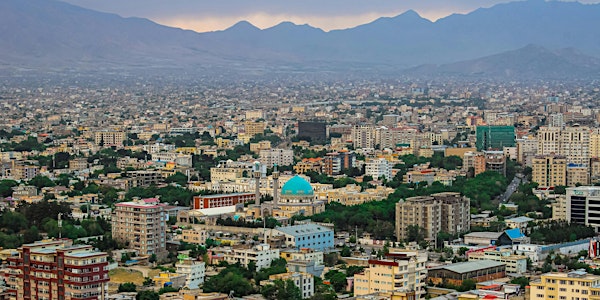Course Brief Summary:
This three-day short course organised by the Aga Khan University’s Institute for the Study of Muslim Civilisations (AKU-ISMC) and the Aga Khan Trust for Culture (AKTC).
This three-day course introduces learners to the specificities and diversities of cities across the Muslim World—past and present. The course asks the following questions:
- Why are cities important sites of cultural, political, and historical action?
- Is there such a thing as a “Muslim” or “Islamic: city?
- What differences and commonalities, historical and contemporary, do we find among major cities in the Muslim world?
- What role does Islamic architecture have in shaping the “Muslim” identity of a city?
- How were port cities indicative of the links between trade and Islam in the early modern world?
- How do non-Muslim minorities create an imprint in the city?
- Urban rehabilitation in the Muslim world: challenges and opportunities.
Course Learning Outcomes:
Participants should leave the course with an understanding of how cities have been centres of political, economic, and cultural power in the Muslim world.
Course leader(s):
Dr. Sanaa Alimia is an Associate Professor of Political Science at the Aga Khan University, Institute for the Study of Muslim Civilisations. Her teaching centres on political decolonisation, cities, migration, and global politics. She is a recipient of the British Academy/ Leverhulme Small Grants Award for her research project, ‘Digital Borders, Bodies, and Mobility in South Asia’. Alimia has previously held positions at the Leibniz Zentrum Moderner Orient, Berlin (2014-2019), Department of Political Science, University of Peshawar (2013-2017), and SOAS, London (2011-2014).
Dr. Alimia is the author of Refugee Cities: How Afghans Changed Pakistan (Penn Press 2022).
Seif el-Rashidi is an architectural historian with 20 years of expertise working on heritage preservation and managing projects related to promoting public engagement with heritage and culture. He is currently the director of The Barakat Trust, a UK charity that has supported the preservation of the heritage of the Islamic world since 1987. Seif was formerly the Project Manager of Layers of London (2016-2020), developed by the Institute of Historical Research at the University of London; Project Manager at the Guildhall Library (2016-2018); Magna Carta Programme Manager for Salisbury Cathedral (2014-2016); the coordinator of Durham’s UNESCO World Heritage Site (2008-2014); a team member of the Aga Khan Trust for Culture’s Darb Al-Ahmar Revitalisation Project in Cairo (1997-2008) and at Ahmad Hamid Architects (1995-1997). Seif has been a technical reviewer for the Aga Khan Award for Architecture’s heritage projects since 2013, and on the World Monuments Fund Project Selection Committee in 2021 and 2019.
He studied City Design and Social Science at the London School of Economics (Msc), History of Art and Architecture (MA) and Economics (BA) at the American University in Cairo.
He is the co-author (with Sam Bowker) of The Tentmakers of Cairo: Egypt’s Medieval and Modern Applique Craft (AUC Press, 2018).
Course Date and Timings:
3 to 5 July 2024, 13:00-17:00
Course Venue:
Ismaili Centre, Lisbon
Av. Lusíada 1, 1600-001 Lisboa, Portugal
Important information
- The course fees exclusively cover the tuition expenses for the programme. Participants are responsible for their accommodation, travel, health insurance, meal costs, etc.
- International participants are encouraged to join this workshop. Those requiring a visa for travel to Lisbon should contact shortcourse.ismc@aku.edu with the subject line "short course visa." We will issue an acceptance letter for attending the workshop.
- Pre-reading materials for the course will be shared with participants, and it is expected that these readings be completed prior to the commencement of the course.
- The course will be conducted in English.
- Participants will receive an information pack upon completing the registration process.
- Programme fee is non-refundable.
- Spaces are limited, and registrations will be processed on a first-come, first-served basis.
- Should registration be closed, kindly contact shortcourse.ismc@aku.edu. Your registration request will be considered in case of any cancellations.
